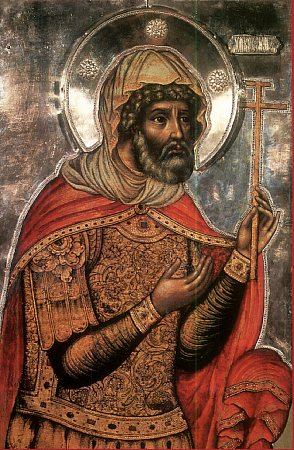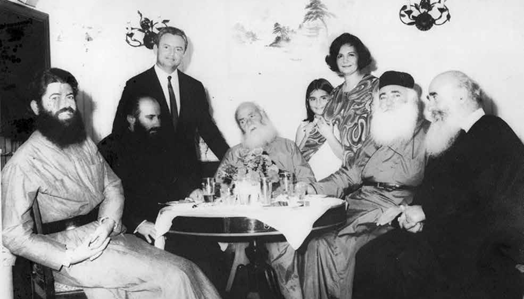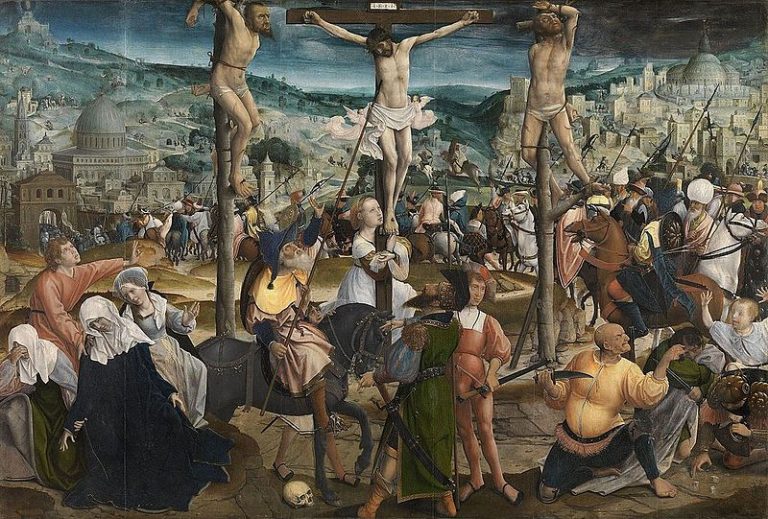Saint Longinus the Centurion
According to the Synaxarist of St. Nicodemus, St. Longinus the Centurion lived around 15 AD – when Tiberius was emperor – and came from Cappadocia. His superior in the hierarchy of the Roman administration was Pontius Pilate, from whom he received the order to participate with his soldiers in the Holy Passion of Christ our Saviour. Longinus carried out Pilate’s orders with perfect precision and maintained an exhausting attitude towards the dying God-Man. When the Lord, He who raised the dead, healed the crippled and sick, delivered the demon possessed from the dominion of Satan, He who by His preaching and holy life abolished the inequality, racism and xenophobia of that time, He who performed miracles that cannot fit in all the books of the world, asked for the least, the cheapest, the smallest token of gratitude, betrayed on the Cross, scourged, humiliated, weary He uttered the word “thirst”. But then Longinus and his companions reached the height of their wickedness by offering Him, instead of water, vinegar, a gift of their perfect ingratitude. But the Lord’s phrase, “It is finished,” and the events that followed after His death, shook the centurion’s soul, prompting him to confess that the Crucified One was truly the Son of God. Divine grace and Longinus’ sincere heart worked together and enabled him to make this confession even before the event of the Resurrection.
From that moment on it was impossible for him to cling to his old faith, and even more impossible for him to accept, for a few pieces of silver offered to him, to spread the word that the Resurrection of Christ is a lie. No, it was the greatest Truth he ever knew, and he made it his life’s purpose to spread it to the whole world, making himself a centurion, or rather a chiliarch and general of the heavenly empire.
Afterwards, the soldier of Christ Longinus left his military office, returned to his homeland and preached Jesus Christ, the Suffering and Risen One. This was not accepted by the Jews, who, having informed and bought off Pilate, persuaded him to condemn Longinus to death on the grounds of treason against the emperor. So Pilate sent soldiers to kill him. God’s providence, probably to reveal the indefatigability and faithfulness of this great saint, allowed that the first man Pilate’s envoys met in Cappadocia was Longinus himself. He welcomed them, entertained them, and, although they made their intentions known to him, he solemnly completed the hospitality. He even urged them to carry out the order they had received, so that he, in turn, might receive the crown of martyrdom by beheading.

Saint Longinus as a model of missionary work
The basis, foundation and proof of the truth of our faith are not scientific words, amazing and miraculous events or wise and enlightened persons. It is a single event inconceivable, unimaginable, impossible to be realized by any man on earth except by God, the event of the Resurrection of Christ. Unquestionably it dominates human history, since the very blood of the Longinus who lived at the moment of the Lord’s death and of the apostles who saw Him risen signifies its truth. Many men have died for ideas, but not for a lie. And if there was still one, surely dozens would not. The blood of the apostles, of Longinus and of all the martyrs proclaims that it is true the Resurrection preached by the missionaries to the Gentiles in the Word without a Word in the catechism, it is true the Resurrection taught in the Bible, it is true the Resurrection experienced by the newly converted brethren in the sacraments of the Church and especially in that of the Eucharist.




